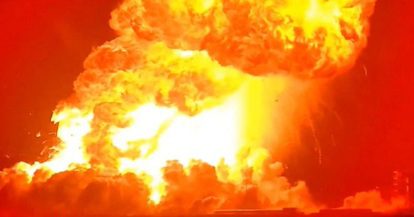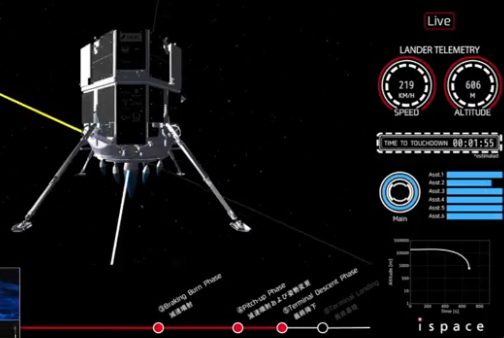At 1530 GMT on 24 June 2016, an Atlas V in the 551 configuration launched the fifth Mobile User Objective System, MUOS, satellite for the US Navy. The rocket lifted-off from Complex 41 at Cape Canaveral, Florida, for the 108th ULA (United Launch Alliance) launch and represents only the sixth time the Atlas V has flown in this configuration in 10 years. The launch had been delayed for a month due to an investigation of a first-stage anomaly on the previous Atlas launch in February carrying the Orbital ATK Cygnus OA-6 cargo freighter.
Update 9 July 2016: Subsequent to the report of a successful launch, the satellite was revealed to be stranded with its perigee only half way to its planned slightly inclined 36,000km altititude geostationary orbit. Currently, according to orbit watcher Jonathan McDowell, the satellite is stranded in 15242 x 35703 km orbit at 9.8 degrees inclination. A propulsion system fault is suspected.
The MUOS constellation provides UHF (Ultra-High frequency) based secure communication to the US military. These spacecraft replace the legacy UFO (Ultra-high frequency Follow-On) satellites launched between 1993 and 2003. The MUOS satellites are, however, capable to providing 10 times greater capacity and throughput than the previous 10 satellite UFO constellation, and with just four MUOS spacecraft with this fifth satellite acting an in-orbit reserve, albeit with its UHF-payload being continuous operation.
In addition to the legacy UHF-payload, the MUOS spacecraft also provide Wideband Code Division Multiple Access (WCDMA) capacity that works to augment the UHF-payload to increase the throughput.
With this launch the constellation was to be complete in the eyes of the US Government. However, if this satellite is irretrievable, another MUOS will be launched. As it was a sixth MUOS satellite was under discussion between the US and its allies, specifically Australia, Canada, Italy, Japan, South Korea and the UK with these countries funding the spacecraft albeit that the launch would still be provided by the US.






